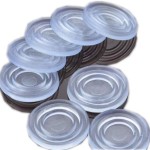Essential Aspects of Growing Vegetables in a Container
Container gardening is a convenient and space-efficient way to grow your own vegetables. Whether you have a small patio, balcony, or apartment, you can enjoy fresh and homegrown produce. However, selecting the right vegetables and considering specific factors is crucial for successful container gardening.
Vegetable Selection
Not all vegetables are suitable for growing in containers. Some factors to consider include:
- Root Depth: Vegetables with deep roots, such as carrots and beets, need ample space to grow. Choose shallow-rooted varieties like radishes and spinach for containers.
- Plant Size: Consider the mature size of the vegetables. Large plants like tomatoes and cucumbers may need larger containers or trellising.
- Growth Habit: Choose vegetables that are compact and upright or trailing varieties like strawberries and peas.
Container Choice
The type of container you choose will impact the growth of your vegetables. Consider these factors:
- Size and Volume: The size of the container should accommodate the root size and growth habit of the vegetables.
- Drainage: Good drainage is essential for preventing root rot. Choose containers with drainage holes or add rocks or broken pottery to the bottom.
- Material: Plastic, ceramic, and terracotta containers are common options. Plastic is lightweight and durable, while ceramic and terracotta can provide insulation.
Soil and Fertilization
Quality soil is essential for healthy plant growth. Use a well-draining potting mix specifically designed for containers. Amend the soil with organic matter, such as compost or peat moss, to improve fertility.
Regular fertilization is important to provide essential nutrients for growing vegetables. Use a balanced fertilizer diluted to half strength and follow the instructions on the label.
Watering
Container-grown vegetables dry out more quickly than those in the ground. Water regularly, especially during hot and dry weather. Check the soil moisture by inserting your finger into the top inch of soil. If it's dry, water the plants deeply.
Avoid overwatering, as it can lead to root rot. Use a watering can with a gentle spray nozzle to prevent soil erosion.
Additional Care
In addition to basic care, consider these tips for successful container vegetable gardening:
- Provide Support: Trellis or stake larger plants to prevent them from falling over.
- Mulch: Mulch around plants to conserve moisture and suppress weeds.
- Rotate Crops: Annually rotate crops in containers to maintain soil health and prevent disease.
- Monitor Pests: Regularly check for pests and treat them promptly using organic or natural methods.
By following these essential aspects, you can enjoy the rewards of growing vegetables in a container and savor the taste of fresh and homegrown produce throughout the season.

20 Best Vegetables For Container Gardening Growing In The Garden

20 Best Vegetables For Container Gardening A Piece Of Rainbow

The Best 11 Vegetables To Grow In Pots And Containers Gardener S Path
Vegetables In Containers Rhs Gardening

Vegetables You Can Grow In Small Pots Space Gardening

How To Grow Organic Vegetables In Pots About The Garden

17 Vegetables That You Can Grow In Pots And Containers Growing Container Gardening

25 Most Ive Vegetables For Containers Best Pots
:max_bytes(150000):strip_icc()/__opt__aboutcom__coeus__resources__content_migration__mnn__images__2017__03__Container-Garden-Sweetie-Baby-Romaine-29766bda3242464c8a89ca2d12de4c4b.jpg?strip=all)
The Secret To Container Vegetable Gardening

Maine Gardener No Land Grow Vegetables In Pots








